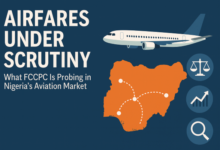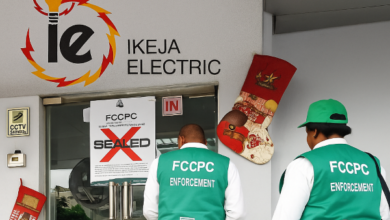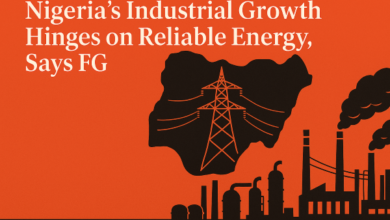FG needs to Eliminate multiple taxes to boost investment – Expert
 An economist, Dr Chijioke Ekechukwu, has urged the Federal Government to eliminate multiple taxation within the economy to boost investment.
An economist, Dr Chijioke Ekechukwu, has urged the Federal Government to eliminate multiple taxation within the economy to boost investment.
Ekechukwu, a past president of the Abuja Chamber of Commerce and Industry (ACCI), said this in an interview with the News Agency of Nigeria (NAN) on Sunday in Abuja.
He commnded the the Presidential Committee on Tax Reforms for a good job in harmonising the multiple taxes, while calling attention on the tax systems of state governments as well as Local Government Councils.
“Generally, on the fiscal side, the Presidential Committee on tax reforms was a good idea. That committee concentrated mainly on federal taxes.
But the problems, mainly are with the states and Local Governments,” he said.
The Chairman of the Presidential Committee on Fiscal Policy and Tax Reforms, Taiwo Oyedele, said that his committee had advised the government to cancel many of the current taxes that have become burdensome to the people, and harmonise the few that are justifiable.
Oyedele said that the committee also advised the government to digitise the collection process with multiple channels, including USSD, to drive efficiency, reduce leakages and promote accountability.
Meanwhile, the need to eliminate multiple taxation and boost tax revenue informed a recent Strategic Management Retreat by the Federal Inland Revenue Service (FIRS), geared at re-imagining tax administration for equity and economic growth.
The Executive Chairman of FIRS, Dr Zacch Adedeji, said the organisation had a collection target of N19.41 trillion for 2024, after it surpassed its 2023 target of N10.7 trillion by N816 billion, having generated N12.37 trillion.
Adedeji said that the task was achievable considering the reforms and new structure being put in place to boost voluntary compliance by taxpayers.
He said the new approach was to provide the enabling environment for businesses to survive in order to facilitate the collection of taxes.
“Our duty is to provide an effective tax collection system. We are not a revenue generating agency; we are a revenue collection agency.
“If we go with the plan that President Bola Tinubu has to rejuvenate the economy, it comes mainly from macroeconomic indices
“We are going to tax prosperity, not poverty. We are going to focus on the fruit and not the seed.
“Our duty is to make sure that we have that viable economic environment to lead to economic prosperity and for us here, it is just to put the structure in place to aid effective collection,” he said.
He said that the focus would be to increase tax without increasing the tax rate.
“Our focus is actually to improve our effectiveness in collection to drive voluntary compliance.
“We will also expand the base and have a good environment that makes the companies prosper. When the base is big, the same percentage will give you more taxes, and that is our target,” he said.
Adedeji said that the resolve to create an environment of growth by removing every obstacle in the way of corporate entities was in line with the directive of the government.
He said that the ongoing restructuring at the FIRS leading to the creation of a one-stop shop for taxpayers according to their turnover thresholds was part of measures aimed at easing payment of taxes.
“The way we are structured now is that we have large taxpayers’ group, medium and small.
“Those in the large tax group are companies with turnover of N5 billion and above.
“In the large tax category, you will now be required to pay all your taxes, including Company Income Tax, VAT and others in that one-stop shop where you can also have issues relating to audit sorted.
“Essentially, the issue of multiple letters from various units within FIRS over almost the same matter has been taken off the system with the restructuring that we have done.
“We are now focused on providing the needed service to our customers,” he said.
He said that the relationship between FIRS and the taxpayers was symbiotic.
The Minister of Finance and Coordinating Minister of the Economy, Mr Wale Edun, said that while tax revenue remained crucial, the issues around increase in government revenue deserved attention.
Edun said that the country’s tax revenue as a percentage of Gross Domestic Product (GDP) *remained extremely low at 10 per cent.
According him, though FIRS met and surpassed its target for 2023, additional efforts are still needed to measure up to the challenge in 2024.
“In order to maintain and build confidence and public trust, what the taxpayers want to see is that their money is faithfully collected as it should be and properly spent and accounted for with minimal excess wastes and leakage,” he said.
The Accountant-General of the Federation (AGF), Dr Oluwatoyin Madein, said that FIRS now accounted for up to 70 per cent of the country’s total revenues.
Madein, however, said that a lot of tax revenues were still left uncollected, adding that there was the need to expand the current tax base.
She urged the FIRS boss to challenge the status quo in his bid to increase tax revenue.
“We have seen a massive improvement in tax collection with the changes at FIRS over the years. The FIRS now contributes about 70 per cent of the total federation revenues.
“Yet, a lot of tax revenues are left uncollected. The current tax base needs to be expanded while at the same time finding new and improved ways and means, and partnerships that engender tax revenue growth.
“With strategic cooperation within FIRS and strategic partnerships, and by challenging the status quo, I am strongly convinced that FIRS can set a new standard for tax administration in Africa.
“If we continue to do business as usual, we continue to get the same level of results,” she said.
The Coordinating Director of Special Tax Operations Group, FIRS, Amina Ado, said the N19.41 trillion revenue target for 2024 represented an increase of 56.9 per cent from the previous year’s actual revenue.
Ado said that the FIRS engaged with other regulators in 2023 to achieve its success and will continue to engage them, other tax practitioners and intermediaries.
“We engaged with other regulator; we will continue to engage them, tax practitioners, intermediaries, and the withholding concept to expand the tax base as much as possible under the law.
“The law has given us a lot of opportunities to expand the withholding concept so that we can take the taxes, and that way, the leakages downstream can be lowered.
“These are strategies we will deploy to ensure we deliver on this ambitious target”, she said.











